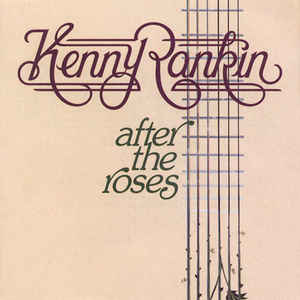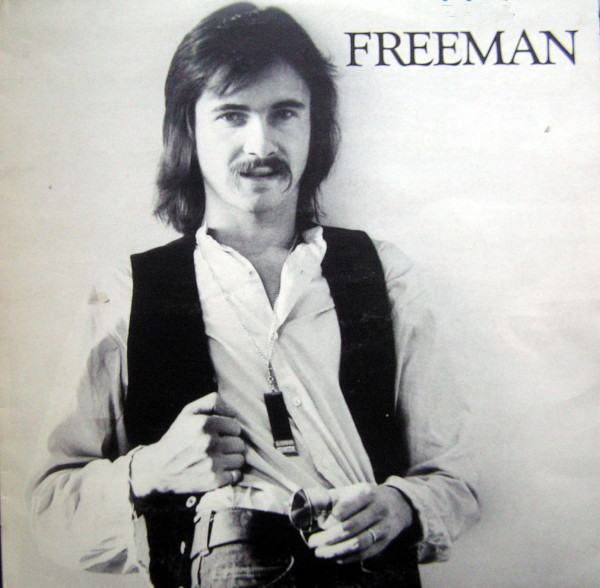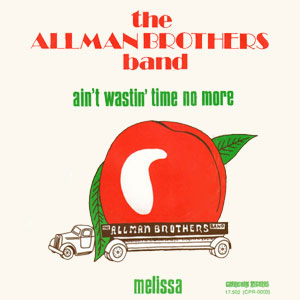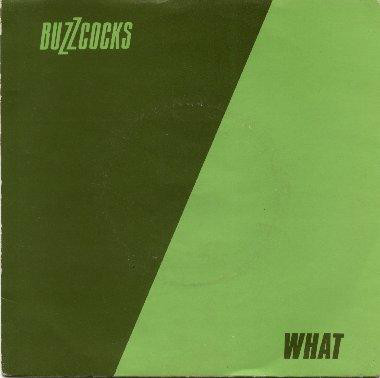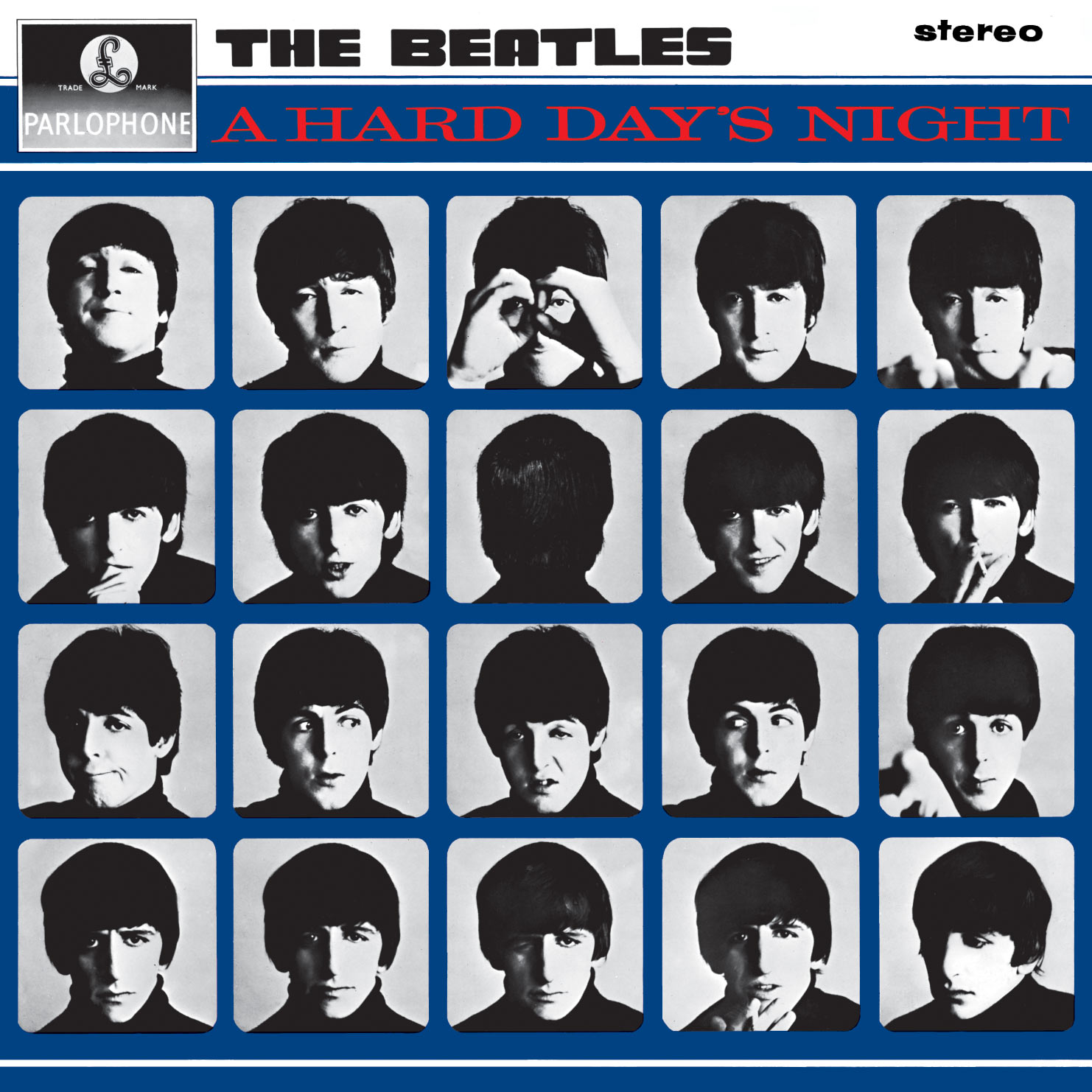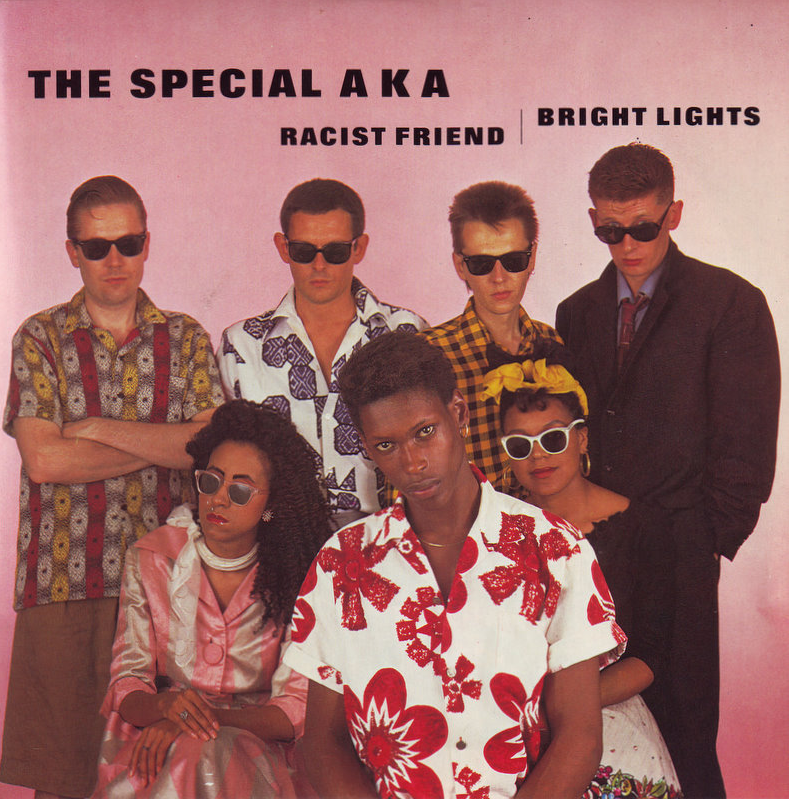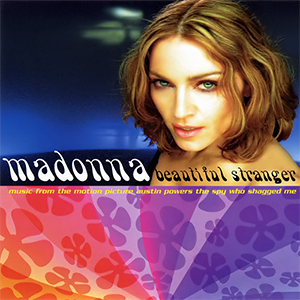
“Beautiful Stranger” (1999) – Madonna * Written and produced by Madonna and William Orbit * CD single: “Beautiful Stranger”/ (Victor Calderone remixes) * LP: Austin Powers: The Spy Who Shagged Me (single) * Label: Maverick
Anyone familiar with Love’s “She Comes in Colors” (1967) heard its twisty hook (IIIb – VIIb – IV – VIb) in Madonna’s “Beautiful Stranger” right away. Rhino Records’ Gary Stewart took note of it in Entertainment Weekly, with a sky-is-blue response from a spokesperson that Madonna had never heard of Love. It was likely co-writer William Orbit, though, who drew from the psych-rock cult record to juice the sixties genetics of this particular Austin Powers: The Spy Who Shagged Me assignment. The single’s movie tie-in odor, though, was out of Orbit’s hands.

